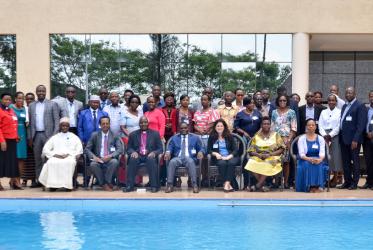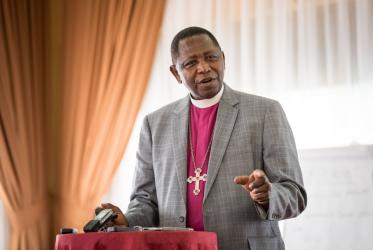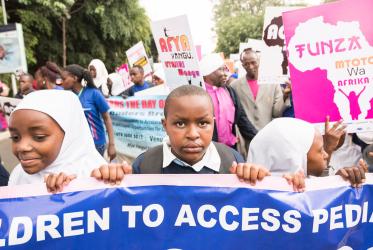Displaying 61 - 80 of 193
“Facing the storm of HIV, we can move together, be agents of change”
06 September 2017
GEM School: integrating theology and economics
05 September 2017
Religious leaders explore message of peace in Burundi, DRC
23 February 2017
AIDS 2016: “Stigma kills more people than HIV”
17 July 2016
Religion: Way of war or path to peace?
30 June 2016












